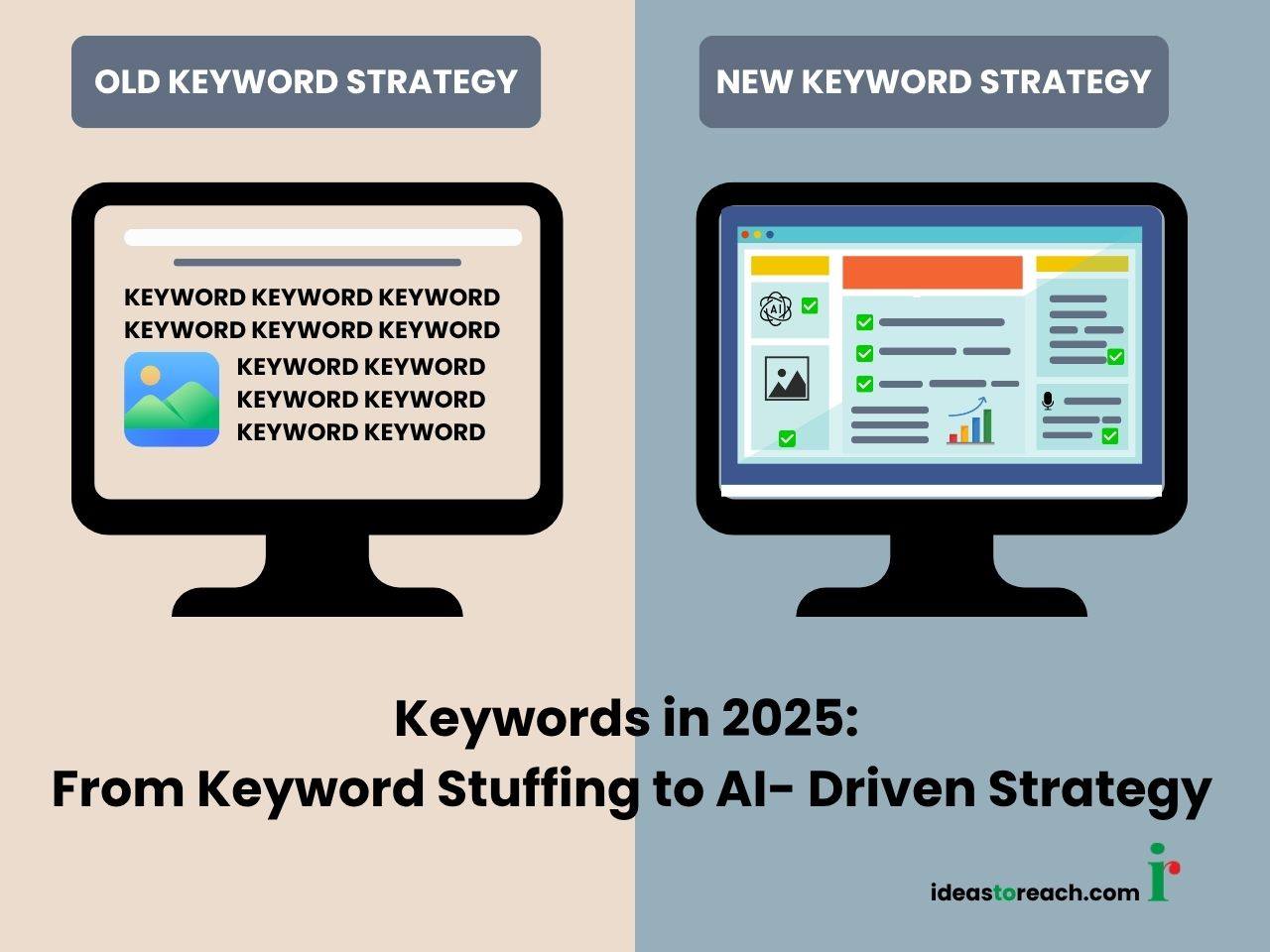
If you’ve been doing SEO for a while, you’ll remember the old playbook: find a keyword, stuff it into every sentence, and wait for Google to reward you with a top spot. For years, that approach worked, especially in industries like real estate, where everyone was chasing rankings for phrases like “best flats in Chennai” or “plots in Chennai.”
But fast forward to 2025, and Google has become a whole lot smarter. It no longer just scans for keywords, it understands what people are looking for.
So, the big question:
Are keywords dead?
Not at all. But their role has changed, and knowing how to use them right is more important than ever.
In earlier days, if you wanted to rank for “real estate investment in Chennai,” you’d repeat that exact phrase 10 times across your page. Whether or not your content was actually helpful didn’t matter much, keyword density did.
Today, Google’s algorithms are built to understand natural language, user intent, and topical relevance. It looks beyond exact matches and evaluates:
It’s no longer about matching phrases. It’s about solving problems. This shift is largely powered by Natural Language Processing (NLP), a key technology that enables Google to interpret content the way humans do, factoring in context, tone, and relevance.
Explore how NLP works and why it matters in SEO.
Find out if your content truly delivers value or just adds noise here.
Let’s say someone searches for:
“Best real estate investment opportunities in Chennai 2025”
In the past, repeating that exact phrase multiple times might’ve done the trick. But now?
Google is asking deeper questions:
If the answer is yes, you’re in the game.
If not, even if you’ve used the keyword 15 times, you’re probably not ranking.
Yes! Just not the way they used to be.
Keywords are no longer the destination, they’re the signboards that help you reach it.
They help Google understand the theme of your page, but they can’t carry the weight alone. You need depth, intent alignment, and clarity.
Here’s what Google now prioritizes, beyond just keywords:
| SEO Element | Why It Matters |
|---|---|
| User Intent | Content must align with why someone searches |
| Topical Relevance | Cover topics comprehensively and naturally |
| Contextual Keywords | Use variations and semantically related terms |
| EEAT (Experience, Expertise, Authoritativeness, Trust) | Builds credibility and is key for ranking in high-trust content areas |
| UX & Mobile Optimization | A clean, fast, and mobile-friendly page performs better |
Let’s get real: using keywords today isn’t about “inserting them enough times.” It’s about placing them where they matter most, and making sure they support your content, not dominate it.
Here’s a smarter, 2025-ready approach to keyword usage:
These are the placements Google still values, because they help define what your page is about.
e.g., /real-estate-investment-chennai-2025
Learn the ideal length for title tags and meta descriptions in our Timeless SEO Guide.
You want your content to read like it was written for humans, not bots.
Instead of repeating:
“Best flats in Chennai, Chennai best flats, best Chennai apartments…”
Try writing naturally:
“If you’re looking to invest in Chennai’s fast-growing neighborhoods like Tambaram or Avadi, the demand for 2 & 3 BHK flats is steadily rising.”
Use tools like LSI Graph, Semrush, or even Google’s People Also Ask section to find related terms to include.
In 2025, people don’t just search “plots in Chennai”, they type full queries like:
Use these as H2s or FAQs in your blog. It helps with featured snippets, voice search, and AI summaries like Google’s SGE.M
Discover actionable tactics for structuring your content to appear in AI-generated search summaries here.
Instead of writing five separate blogs for:
Group them under a broader, well-researched topic cluster like:
“Complete Guide to Real Estate Investment in Chennai: Area-wise Analysis, ROI, and Trends [2025]”
Then link out to deeper pages if needed. This builds authority and satisfies multiple queries from one place.
This isn’t 2010, Google will penalize keyword stuffing.
If your keyword density feels forced, rewrite it. One good rule: read it aloud. If it sounds unnatural, it is.
For more on keyword research tips and tools, check out our full Guide to mastering keyword research.
In 2025, SEO isn't about chasing exact-match keywords or gaming the algorithm. It's about creating content that genuinely helps people.
Keywords are still essential, but they’re just one part of a larger ecosystem. What truly matters now is how well your content aligns with what users are looking for, how much value you provide, and whether Google can trust your site to deliver it.
If you want to rank, and stay ranked, here’s what to remember:
So no, keywords aren’t dead, but lazy SEO is.
The future belongs to creators who understand their audience and optimize with purpose.
Keywords no longer drive rankings by repetition. Today, they act as signals that help Google understand topic focus, while rankings depend more on intent match, depth, and overall content quality.
User intent, topical relevance, and content usefulness matter far more than how often a keyword appears. Google rewards pages that fully answer a search query, not those that repeat phrases.
Contextual and semantic keywords help Google understand meaning, not just wording. Using related terms and natural language strengthens topical relevance and improves visibility across multiple related searches.
Topic clusters group related content around one core theme, allowing one page to rank for many queries. This approach builds authority and performs better than creating separate pages for each keyword.
Start with user intent, use keywords naturally in key on-page locations, and build content depth through topic clusters. Focus on clarity, relevance, and trust rather than chasing exact-match rankings.